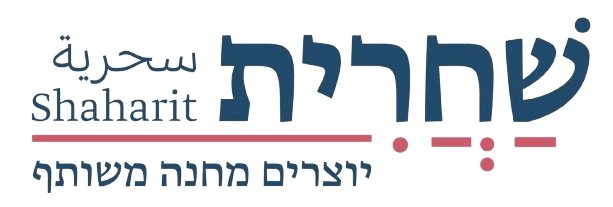It started with an intuition. It was six months after the social protests of summer 2011. We at Shaharit spent nearly every evening in a tent city in a different location – in Kiryat Ono, in Yeruham, in Haifa, Jerusalem, Tel Aviv, Be’er Sheva, Holon, Hod Hasharon and many more. Every night, under the canopy of the stars, one could find in nearly every city in Israel residents whose paths had never before crossed sitting until the late hours of the night, talking and arguing about their city, their country and their common future. I was present for discussions between Haredim and Religious Zionists and secular Israelis, between Russians and Ethiopians, Mizrahim and Ashkenazim, Jews and Arabs. Between people who thrive economically and people who can barely afford to pay the rent, and those that are close to living on the streets.
The intuition was that such a massive public experience wouldn’t simply disappear overnight, and that across Israel there were still groups meeting that had been formed on those very nights, looking for a way to influence the future of their cities in the leadup to the local elections. And indeed, under the radar, we discovered an ecosystem full of new partners, for whom the central message of the protests was the need to build a future that works for all of us, and together. In Ashdod, Tirat Carmel, Jerusalem, Haifa, Gedera, Rehovot, Sderot and Yeruham, we found our first partners. Since then, more and more have joined. We call it a politics of the common good.
And here we are again, in the lead up to the October 2018 municipal elections, sitting in a hall packed with people committed to building a better future. I’m not deluding myself. Sitting here are people who came from such wildly different places from across Israel – from Kiryat Shmona to Rahat to Ashdod to Tel Aviv to Bnei Brak to Sakhnin – with vastly different backgrounds and worlds of values and of meaning that often stand in conflict to one another. The commonality which I believe is here, and which Shaharit promotes, is the simple insight that the future that we want to see is dependent on our ability to, without giving up on who we are, to scale the walls of empathy, to understand that the world looks different from a different perspective, and together to build a future that works for everyone. It’s a politics of paradox. Through the contradictions, a common good emerges.
And indeed, in different places around the world, a bottom-up politics is emerging on a local level. Much of it is the result of exhaustion from national politics as it is, culture wars that close people off within their bubbles, and a public discourse of yelling and self-righteousness of “we’re right” and they’re “evil.” At its finest moments – and there are more than a few of these – local politics is exceedingly pragmatic and reaches beyond the partisan divides, simply because real, every day problems of people need to be solved. It’s a politics of relationships and not of pure ideologies, one that sees the other and takes them into account. And t’s a politics of civic engagement, of citizens invited to be involved, not just at the ballot box once every few years, but that whose very praxis is built around engagement and change.
Since the last local elections, we at Shaharit have been very busy. We led participatory processes of citizens envisioning their collective futures in cities around the country – from Sderot in the South to Sakhnin and Araba in the North. We set up pre-elections trainings in the North and South and a unique training, first of its kind, for Haredim committed to taking responsibility for all residents in their cities. We led a series of trainings with partners in Gedera, Tivon, Ramle, Osifiya, and many more.
And we worked on a deep level in four select cities – Ashdod, Jerusalem, Tirat Carmel and Rehovot – with community organizers who worked in the field every day. Our community organizing is based on building relationships between residents from very different places, that discovered that their power was in that which they held in common.
From all of these meetings and activities we learned a thing or two about how to create a different engagement, how to build an alliance between residents from different places and backgrounds, a civic-political partnership, that proves that a politics that is good for all of us is possible. Here are four things that we learned:
1. That culture is an asset. That honoring each and every group, each and every culture, is necessary for a new partnership to emerge in any city or country. All of our identities with their complications and contradictions, need to be anchored as a central value in our shared life. When, in Rehovot they changed the faces of the municipal advertisements from those of northern European stock images to those of the residents themselves, the city made a major step forward in recognizing that the diversity within it is an asset. There is of course friction between different perspectives, but it doesn’t negate the fact that cultural richness is a form of prosperity. When people feel threatened – and we’ve learned that in Israel just about everyone feels threatened – nothing good can happen.
2. That if you want to leave your bubble, and build a joint life together, it can’t happen without relationships based on trust between people. Relationships beat out ideologies. When we talk in ideologies, we return to the bubble. When we build relationships, there’s commitment, and the people themselves are the goal. You aren’t committed to humanity, but to actual people. When a community organizer meets with thousands of residents in one-on-one meetings in order to get to know their world and to invite them to be partners, they return politics to the most important and basic level, the person and their world. There are no shortcuts.
3. That you need to invite everyone to the political table: not to divide up resources between competing interests, but to strive together for a common good. At its best moment, democracy cultivates the insight that all of us are here together building a future for all. When politics is based in zero-sum sectorality, or on the haves at expense of the have-nots, it boomerangs back. When residents from all the different communities in the neighborhood of Har Homa in Jerusalem demanded together a transportation solution for their 3000 children that every day traveled three hours on buses to get to and from school, it was hard to ignore them.
4. That the reality is complicated, and therefor so are the solutions. They’re dependent on the human makeup of an area, on the relationships and on circumstances. As the community organizing folks in Ashdod said when the Shabbat issue erupted in their city: “Ashdod won’t be Bnei Brak. Ashdod won’t be Tel Aviv. Ashdod will be Ashdod.” The decisions need to be made at the place in which they are relevant, from the bottom-up, from the complicated reality of everyday life.
When you pull away from the alarmists in the newspapers and radio, you see that something is happening in Israeli society. When you look away from the spotlight, you discover that underneath almost every rock in Israeli society and especially in the socioeconomic periphery, you can find the seedlings of a future that is good for all. Realizing this hope will take persistence. It will take a belief in people, created in the image of God. It will take empathy and patience. And it demands hard work. This hall is full of people who know how to do that. People that can build a common good. Shaharit is very proud to be a connector and networker, and to be an important part of bringing about such change, a change that works for all of us. We in Shaharit promise persistence, belief in Israeli society with all of its diversities and complexities, empathy for other worlds that see the world vastly differently, and hard work to advance the common good. A future where we live well, together.



